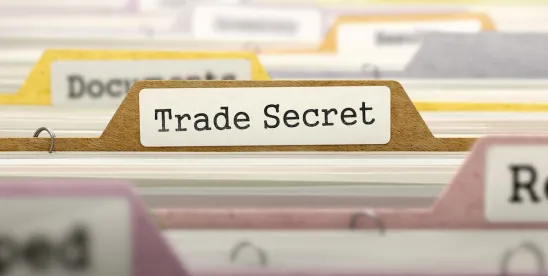On July 30, the Court of Appeals of Virginia reversed Appian Corp.’s $2 billion trade secrets judgment against competitor Pegasystems Inc. (Pega) and remanded the case for a new trial. The judgment was the largest jury award in Virginia history.
On May 9, 2022, a unanimous jury found Pega violated the Virginia Computer Crimes Act and misappropriated Appian’s trade secrets, awarding Appian $2.036 billion.
On appeal, Pega asked the court to reverse the jury’s verdict because of insufficient evidence that it misappropriated any trade secrets. As alternative relief, Pega sought a new trial, arguing that the trial court erred in excluding certain evidence and providing “flawed” jury instructions. The Court of Appeals agreed in part, finding that the trial court “committed a series of errors that require us to reverse judgment as to Appian’s trade secret claims.”
With respect to the first issue, the Court of Appeals held that the trial court did not err in denying Pega’s motions to strike and to set aside the verdict. Relying on Virginia’s Uniform Trade Secrets Act (VUTSA), and based on an analysis of what constitutes a “trade secret” under the statute, the Court of Appeals reasoned that Appian did not demonstrate that the misappropriated information qualified as trade secrets as a matter of law. “Ultimately, the evidence, when viewed in the best light to Appian, reveals that Pega used a ‘spy’ to obtain access to Appian’s software and confidential ‘documentation.’ The trial court here correctly determined that Appian provided sufficient evidence to survive Pega’s motions to strike and to set aside the verdict.” The Court of Appeals further rejected Pega’s efforts to impose a heightened particularity standard not found in the VUTSA.
With respect to the second issue, however, the Court of Appeals sided with Pega. The trial court rejected Pega’s request for a jury instruction requiring Appian to prove that its wrongful conduct was the proximate causes of Appian’s damages. “Instead, the court instructed the jury to apply a burden-shifting approach under which, upon proving a misappropriation of a trade secret, Appian’s only further burden was to ‘establish[] by . . . greater weight of the evidence Pegasystems’ sales.’” (Emphasis in original). Based on this instruction, once Appian proved Pega’s total sales revenue, the burden shifted to Pega to prove what portion of the revenue was not attributable to the trade secrets.
The Court of Appeals further held that the trial court erred in giving an instruction that failed to place the burden of proving proximate cause on Appian. Appian sought damages against Pega based on Pega’s unjust enrichment, and the VUTSA “requires the complainant to prove that ‘unjust enrichment’ damages were ‘caused by misappropriation.’” Since Virginia law generally places the burden on plaintiffs to prove their damages with reasonable certainty as well as the cause of those damages, the Court of Appeals held that this burden-shifting framework was error and inconsistent with Virginia’s rejection of the framework. Instead, the Court of Appeals held that the instruction given “contravene[d] Virginia case law, VUTSA’s express language, and the Restatement’s own burden-shifting framework[]” and was reversible error.
The case is now remanded for a new trial in which “the jury is instructed that the complainant bears the burden of proving proximate cause between the misappropriation and any unjust enrichment damages.”



 />i
/>i

